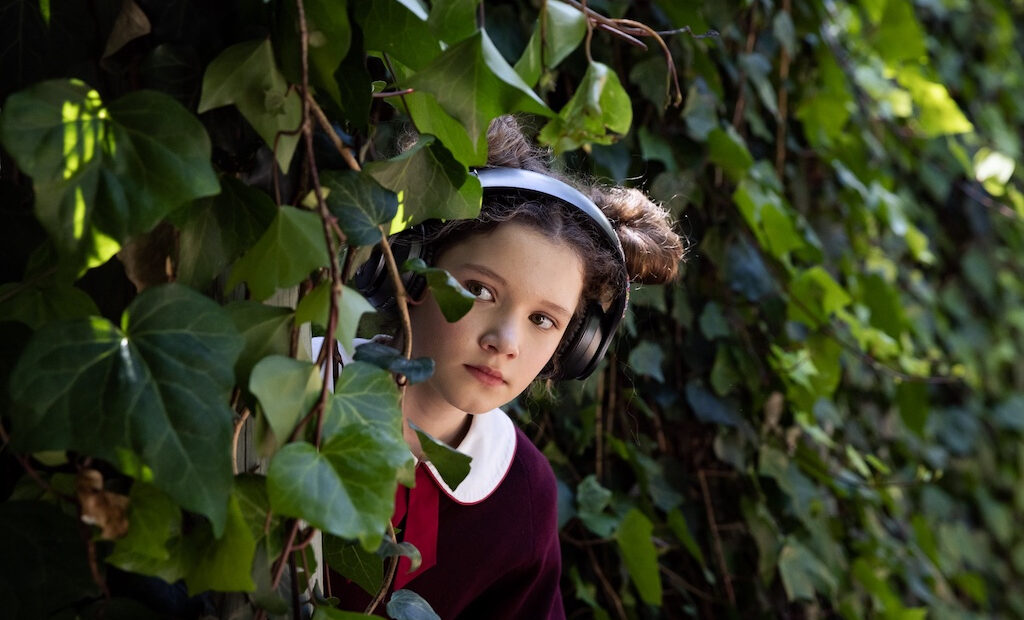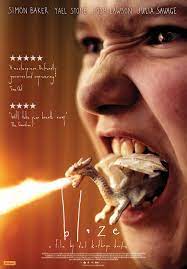Blaze

Blaze is one of those startlingly original debut features that makes you stand to attention. This is arguably not surprising. Director Del Kathryn Barton’s bold figurative artwork has graced Australian exhibitions for almost 30 years, establishing her as a distinctive voice in the process. Melding her psychedelic visual sensibility into a live-action, narrative feature film was hardly ever going to be a dull proposition, but what is noteworthy is just how seamlessly and effectively it moves with the ebb and flow of this bruising, honest coming-of-age tale.
Barton uses puppetry and stop-motion to build the world of the vivid imagination of Blaze (Julia Savage), a 12-year-old girl living with her kindhearted single father (Simon Baker). Blaze retreats further than ever into her intricately conceived world of inner fancy, the emotional centrepiece of which is an arrestingly beautiful papier mâché dragon adorned with flamboyant ornaments, after she is the sole witness to an alleyway encounter between a man and a woman with an apparent romantic history, which culminates in rape and murder. The film positions itself as something of a campaigning vessel in this regard, and is eager to inform viewers in the epilogue text that one woman a week is murdered by their current or ex-partner in Australia. It is an unwaveringly shocking sequence which, seen from the perspective of a child, is almost unbearable. Hannah (Yael Stone), the victim of the attack, briefly catches a glimpse of the girl hiding behind a tuft of foliage, petrified in fear, and forms a posthumous connection with her, appearing in vignettes in which Blaze projects onto her a kind of martyrdom of womanhood.
The whole incident represents the loss of innocence, which, even when not triggered by a singular source of trauma, is a brutal and challenging process for every child. As the only witness to the attack, Blaze is embroiled in the proceeding court case, where the cross-examination introduces her not just to the injustice of a legal framework that does not protect victims like Hannah, but to the idea of sex as a weapon. As the film progresses, Blaze becomes increasingly belligerent towards her increasingly concerned father in lieu of the lack of any enforceable justice (she asks a warm and sympathetic counsellor – Bernie Van Tiel – in a psychological facility, “Why am I locked up but he isn’t?”), and retreats further into the annals of her inner life.
But, while most adults in the story are looking for ways to suppress her manifestations of grief, her imagination is what enables Blaze to grow through her trauma, and accompanies her through milestones in her adolescence, including a hypnotic dream sequence on the night of her first period. Barton’s imagery in these sequences is often savage and disturbing, at one stage drawing on the metaphorical, carnal symbolism of body horror. It is certainly a work that never shies away from the torment of Blaze’s healing process, and is sometimes magically direct and impolite about it.
The film would perhaps feel less fulfilling without the extraordinary work of Savage, whose performance is raw, nuanced and representative of the strength of her character in clawing back her agency and sense of self, independent of her traumatic experience, but also in acknowledgment of the fact that the incident will, as Van Tiel’s counsellor states, “echo throughout [her] whole life”.
Blaze is a dazzlingly kaleidoscopic vision, one whose originality is matched only by its emotional potency.
Matthew McMillan
Blaze does not have a UK release date yet.
Read more reviews and interviews from our London Film Festival 2022 coverage here.
For further information about the festival visit the official BFI website here.
Watch the trailer for Blaze here:
























Facebook
Twitter
Instagram
YouTube
RSS